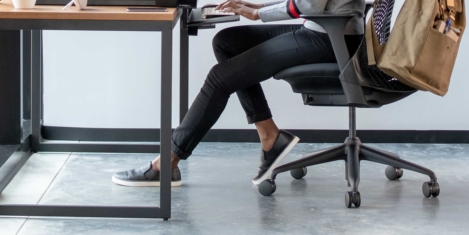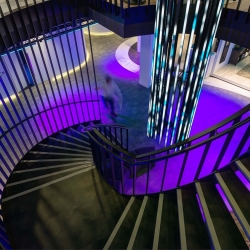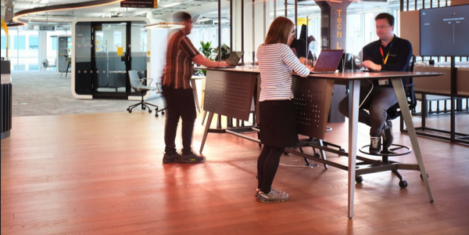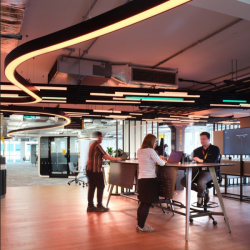To provide the best experiences, we use technologies like cookies to store and/or access device information. Consenting to these technologies will allow us to process data such as browsing behaviour or unique IDs on this site. Not consenting or withdrawing consent, may adversely affect certain features and functions.
The technical storage or access is strictly necessary for the legitimate purpose of enabling the use of a specific service explicitly requested by the subscriber or user, or for the sole purpose of carrying out the transmission of a communication over an electronic communications network.
The technical storage or access is necessary for the legitimate purpose of storing preferences that are not requested by the subscriber or user.
The technical storage or access that is used exclusively for statistical purposes.
The technical storage or access that is used exclusively for anonymous statistical purposes. Without a subpoena, voluntary compliance on the part of your Internet Service Provider, or additional records from a third party, information stored or retrieved for this purpose alone cannot usually be used to identify you.
The technical storage or access is required to create user profiles to send advertising, or to track the user on a website or across several websites for similar marketing purposes.
![]() Nearly all executives (96 percent) agree that primarily remote workers are disadvantaged compared to those who work primarily in the office, according to a poll of 200 executives at large US firms, commissioned by Vyopta. However, 92 percent of respondents also believe employees who are less engaged, either frequently on mute or don’t turn on their camera during remote meetings, probably don’t have a long-term future at their company. More →
Nearly all executives (96 percent) agree that primarily remote workers are disadvantaged compared to those who work primarily in the office, according to a poll of 200 executives at large US firms, commissioned by Vyopta. However, 92 percent of respondents also believe employees who are less engaged, either frequently on mute or don’t turn on their camera during remote meetings, probably don’t have a long-term future at their company. More →


















 Even as we begin to glimpse the light at the end of the tunnel of the pandemic, evidence suggests that many workers want to carry over the working flexibility that the pandemic afforded into the post-pandemic world and a new future of work. Namely, employees are wanting to adopt a ‘mixed’ working style – spending time both working in the workplace,
Even as we begin to glimpse the light at the end of the tunnel of the pandemic, evidence suggests that many workers want to carry over the working flexibility that the pandemic afforded into the post-pandemic world and a new future of work. Namely, employees are wanting to adopt a ‘mixed’ working style – spending time both working in the workplace, 













April 13, 2022
The cargo cult of modern office design
by Mark Eltringham • Comment, Workplace design